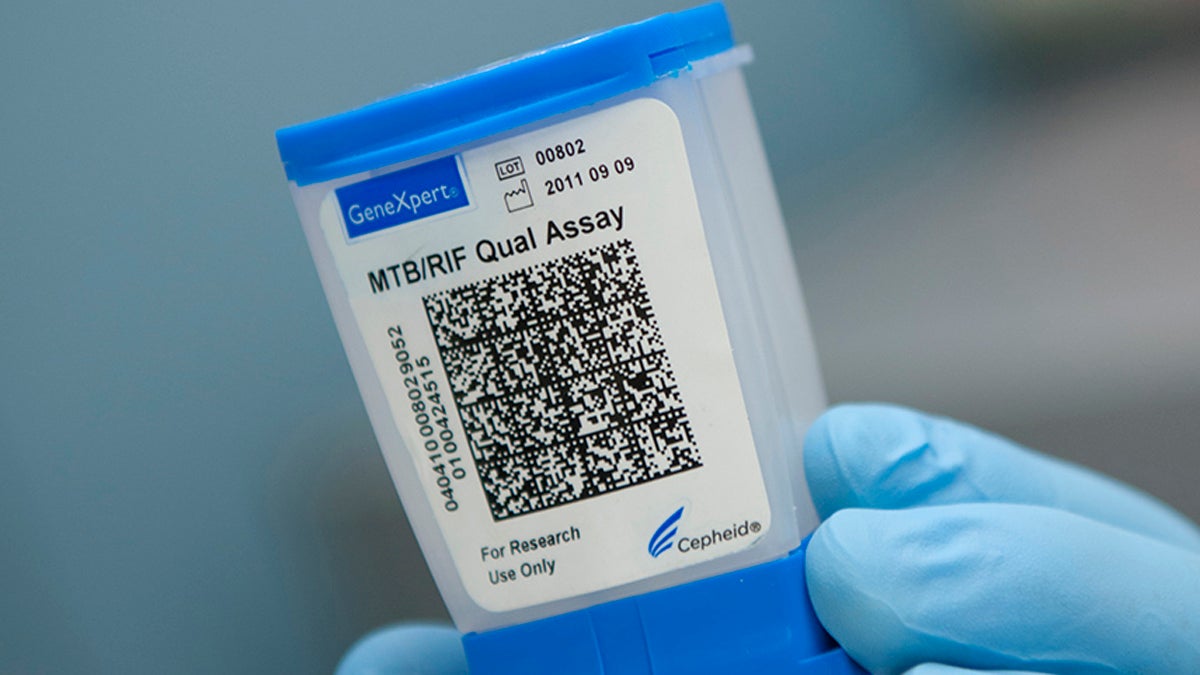Rutgers scientist to help develop quick Ebola test
Listen
Researchers will adapt this cartridge, now used worldwide for tuberculosis screenings, to collect and test samples from potential Ebola patients. (Image courtesy of Rutgers University/John Emerson)
The Ebola outbreak is continuing in West Africa, where part of the difficulty has been simply diagnosing the disease. The National Institutes of Health has now given a scientist at Rutgers New Jersey Medical School a $640,000 grant to develop a faster, lab-free way to detect the virus.
In the current outbreak, just getting blood samples delivered to a testing facility is a huge problem. It can take weeks to get results back to patients. By then, that information is often meaningless.
Chief of infectious disease at Rutgers, David Alland, wants to solve that problem. In collaboration with a California-based diagnostics company, Cepheid, he’s creating an easier test that can be done right next to a patient and takes just 30 minutes.
“They are designed to be run inside a plastic cartridge that is essentially a laboratory about the size of a golf ball,” he said of the Ebola tests.
Alland developed a similar diagnostic for tuberculosis four years ago. In the system, a patient sample is mixed in the cartridge, then run on a machine. If select bacterial or viral genetic material is present, they will be amplified and detected. Existing methods for Ebola diagnosis use the same basic technology, but the process is more labor-intensive than the cartridges.
“It can be done by people with minimal training,” said Alland, “and it can be put on a truck or a van and transported out to where it’s needed most.”
About a thousand machines are already in Africa.
Cepheid is rushing to create cartridges that can detect the strain of Ebola behind the current outbreak by mid-March. With the new funding, Alland is aiming a bit higher.
“The goal is to be able to have one test that can distinguish between Ebola and other Ebola strains and other viruses, for anyone who has symptoms that are similar to Ebola,” he said.
Someone who tests negative for Ebola, but positive for Lassa fever, for example, could be treated for their infection instead of just being properly quarantined. And the ability to detect different types of Ebola will likely prove valuable in future outbreaks. Alland expects this more advanced test to be ready in about 15 months.
While the Ebola outbreak has lessened in recent weeks in Liberia, cases in Guinea are on the rise. According to the WHO, there have been more than 17,000 cases and 6,000 deaths.
WHYY is your source for fact-based, in-depth journalism and information. As a nonprofit organization, we rely on financial support from readers like you. Please give today.

